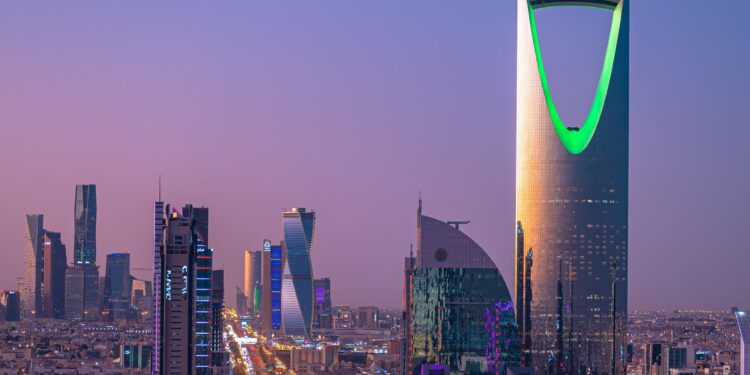With the aim of attracting more international companies, the Kingdom of Saudi Arabia – yesterday, Saturday – began implementing an exemption for regional headquarters from income tax for a period of 30 years, as part of a program launched by the Kingdom with the aim of diversifying the economy of the largest oil exporter in the world.
The Kingdom is scheduled to grant the regional headquarters of foreign companies in the Kingdom incentives that include a 30-year exemption from income tax and withholding tax on regional headquarters payments to non-resident persons, according to what was reported by the German Press Agency.
The official newspaper in the Kingdom, Umm Al-Qura, published that regional headquarters that meet the qualification standards issued by the competent authority are granted an income tax exemption for a period of 30 years, renewable, starting from the date of obtaining the regional headquarters license to carry out qualified activities.
The official newspaper added that regional headquarters are exempt from withholding tax on payments made by the regional headquarters to non-resident persons, which include dividend distributions, payments to related persons, and payments to unrelated persons in exchange for services necessary for the activity of the regional headquarters.
In February 2021, the Kingdom announced plans to stop contracting with companies whose regional headquarters are not located in the Kingdom by January 1, 2024, to help create local job opportunities for economic diversification plans.
Regional headquarters of multinational companies in the Kingdom that meet the qualification criteria issued by the competent authority are granted the following tax incentives:
• “Zero percent” income tax on qualifying income
• Withholding tax at a rate of “zero percent” on payments made by the regional headquarters to persons… pic.twitter.com/P8c7YVsW7N
– Saudi events (@NewsNow4KSA) February 16, 2024
Certain requirements
The rules required:
- The regional headquarters must obtain a valid license issued by the competent authority.
- Not to engage in activities other than activities within the scope of this license.
- Possessing appropriate assets to carry out the activity, provided that the headquarters’ activities are directed and managed, including holding Board of Directors meetings in the Kingdom for the regional headquarters through which strategic decisions are made for the regional headquarters.
The rules include generating revenues from qualified activities in Saudi Arabia, and appropriate operational expenses for carrying out the activities, provided that the headquarters has at least one director residing in the Kingdom, as well as a sufficient number of full-time employees during the tax year.
200 companies submitted applications to open regional headquarters for their operations in the Middle East in Saudi Arabia, such as Airbus, Oracle, Pfizer, and Boeing.
Last December, Saudi Investment Minister Khalid Al-Falih confirmed that granting tax incentives to the regional headquarters of international companies in the Kingdom is an important incentive to make the Kingdom a major center for those regional headquarters in the region, in addition to other benefits granted to these companies, such as flexible Saudization requirements, And attracting executives and distinguished competencies to work in the regional headquarters.
He added that the Kingdom’s economic stability, the presence of distinguished competencies and expertise, in addition to its strategic location and strong growth prospects, contributed to attracting more than 200 companies to the program, in addition to the arrival of many executives and people with distinguished professional competencies from all over the world, according to what he said. The Saudi Press Agency reported at the time.
The Kingdom has pumped hundreds of billions into Vision 2030, a wide-ranging strategy to diversify its sources of income away from hydrocarbons, with support from the Public Investment Fund in Saudi Arabia, whose assets exceed $700 billion, with the aim of diversifying the Kingdom’s economy away from oil.



